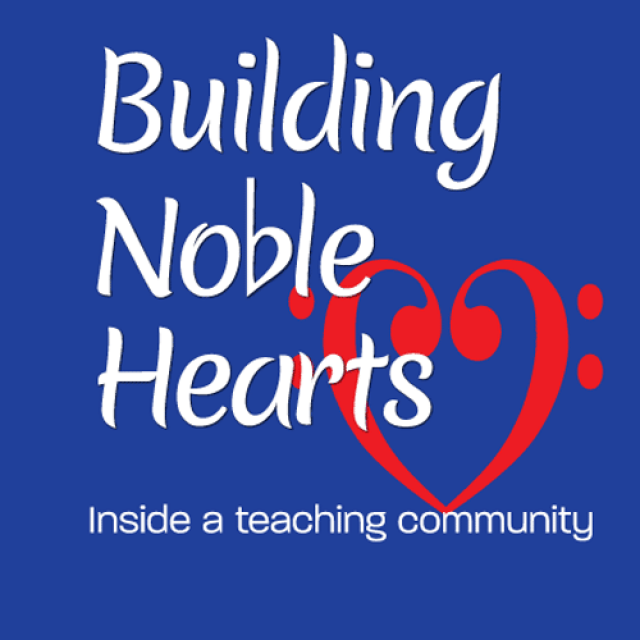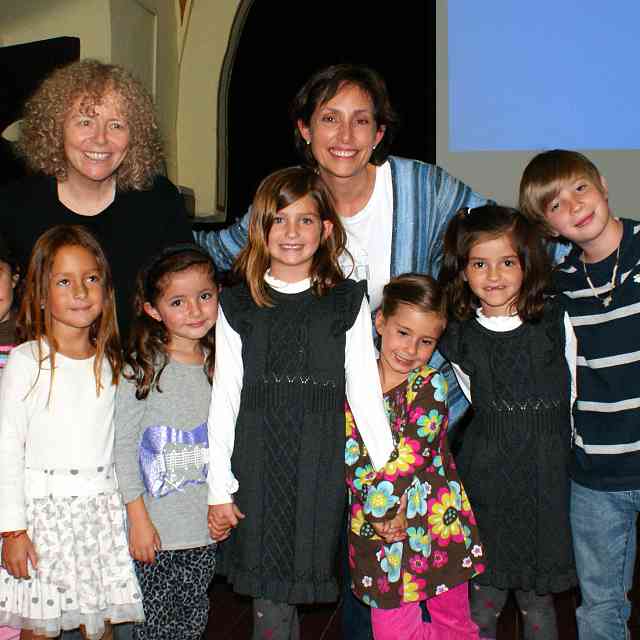Sarah Bylander Montzka
I remember with great vividity when music became an irresistible, intoxicating, all-consuming force in my life—that mysterious and miraculous moment when music was no longer a hobby but a hunger.
It was not always so. While I would practice dutifully, it was more for the approval of others than for any intrinsic fire of my own. When I was about 14, it was as if every seed that had ever been planted bloomed simultaneously. To this day, I have no idea what precipitated it—but I remember taking the day off from school to immerse myself in the works of the great composers. They all seemed to be crying across time, begging for me to listen, pleading for my understanding. I imagined over the span of hundreds of years their message had been received. I felt that I somehow “knew” Beethoven, Tchaikovsky, Rachmaninoff, Brahms, Dvorak, Shostakovich, etc. I had never felt more connected to the universe.
Reflecting on this now, I am struck by the power of music to obliterate every conceivable wall in service of our common humanity. How else could a middle class kid from the suburbs feel that he “got” Shostakovich and Shostakovich was speaking directly to him? But of course, it was equally incongruous that the music of Wolfgang Amadeus Mozart would move a young Japanese violin teacher in pre-World War II Japan to write, “It was Mozart who taught me to know perfect love, truth, goodness, and beauty.” It is striking that so many of the artificial constructs that divide us so deeply are cosmically insignificant in contrast to the unfathomable, rich emotional landscape that is expressed through our art.
It is no surprise that dictators throughout history start by silencing the artists. Any force that reminds us we are fundamentally the same terrifies those who would exploit our fears to divide us.
The divisions in our world have been building for years, but they have arguably never been more keenly felt in our lifetime than right now. I would strongly argue that musicians—and especially Suzuki teachers—have the opportunity and almost-sacred responsibility to remind us of our common humanity, which is indeed at the heart of two of our most foundational principles as Suzuki teachers: “Every child can” and “character first, then ability.”
Every Child Can
While music itself may intimate at these truths, when Suzuki declared that “every child can learn,” he was saying as directly as he could that music is not the privilege of a blessed few, but rather a birthright of all children. Music and musical ability belong equally to children of all races, religions, political parties, genders, sexual orientations, and countries of origin.
Our Suzuki families are as divided as the country right now, and we respect the diversity of opinion within our studios. In keeping with its core principles, however, the Suzuki community wholeheartedly rejects attempts by anyone to denigrate, demean, or discriminate against our brothers and sisters and all members of our human family who might look different, love differently, and worship differently than we do. Every child can.
Character First, Then Ability
I don’t think of character as a good/bad polarity, but rather a set of qualities which we are all seeking to grow: kindness, honesty, generosity, respect, humility, compassion, hard work, discipline, empathy, and curiosity, amongst others. No individual or political party holds a monopoly on these virtues.
Rather than only a “do this, not that” approach, I want my students to experience beautiful tone and musicianship as their own intention. Like many of my teacher friends, I will demonstrate two ways and have the student choose which they prefer. I believe we have an extraordinary opportunity to highlight for our kids the people in their lives who are exemplifying beautiful character traits. Perhaps it is the teller at the bank who always asks about their day and offers a lollipop. Maybe it’s their teacher at school who buys supplies with her own money and always has a special word for everyone. Or the person with very little who still finds something to give to those with nothing. Look for men who respect women and women who are fearless and bold. For kids it can be framed as a game—a scavenger hunt for the best of humanity. We all have such paragons in our lives, and each day affords the opportunity to choose between behaving more like them or more like those who would demean women and minorities and sow racial and religious division. None of us, no matter our politics, can remain silent when fundamental issues of character are at stake.
Now, a quarter century removed from my formative experience as a teenager, I still feel deeply connected to the great composers—however, I hear in them a richness and emotional complexity that had eluded me earlier. Yet that essential quality of oneness amongst all people remains undiluted. This feeling is best exemplified by the greatest masterpiece of them all, Beethoven’s Ninth Symphony with its transcendent chorus: “Alle Menschen werden Brüder”—“All men will be brothers.” No wonder tyrants have no use for music. For if we all “got” this message, we would get that, as Pablo Casals wrote, we are all marvels. And how, he asks, could we then do harm to one who is, like us, also a marvel? He concludes by imploring all of us to create a world that is worthy of our children. No matter how dark things may appear, there is no greater cause in this life.







